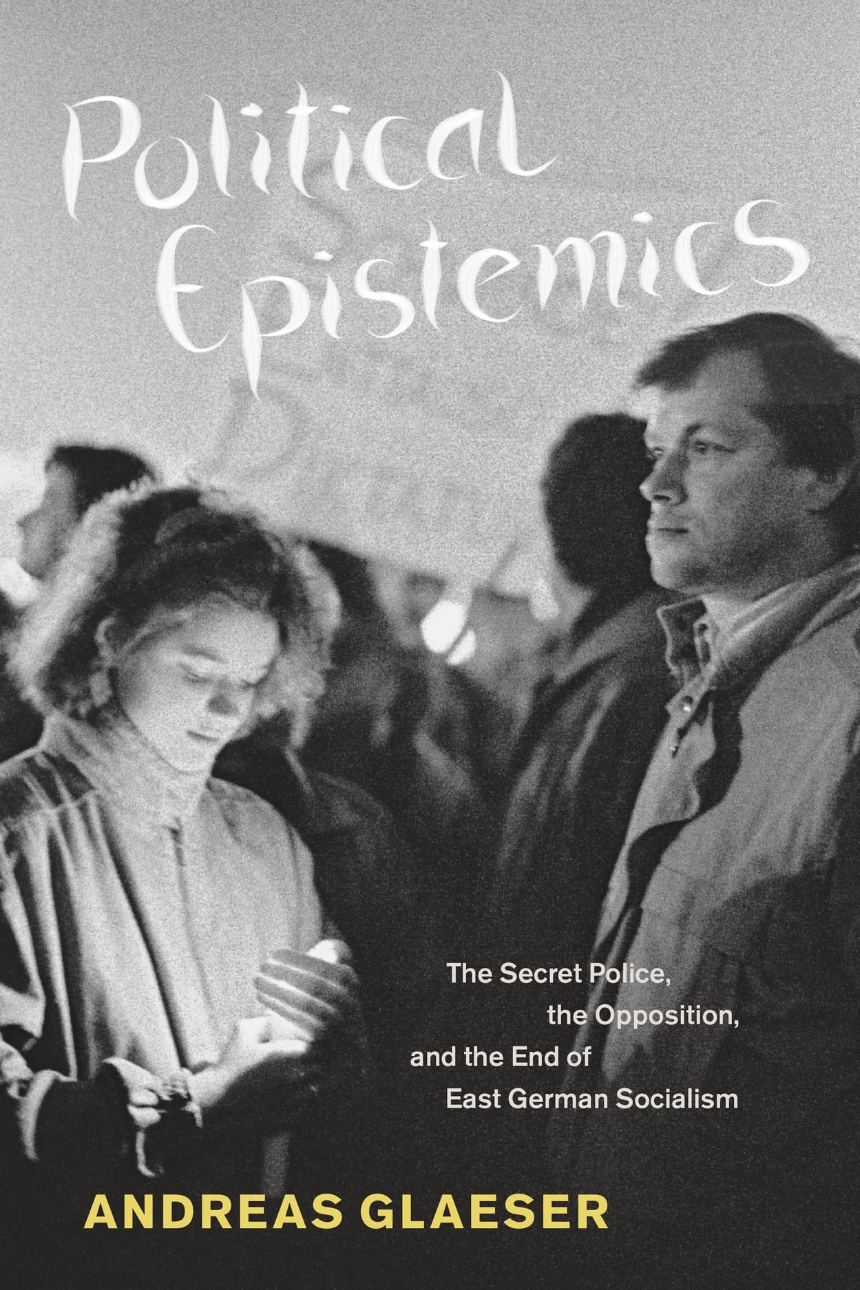Political Epistemics
The Secret Police, the Opposition, and the End of East German Socialism
Political Epistemics
The Secret Police, the Opposition, and the End of East German Socialism
What does the durability of political institutions have to do with how actors form knowledge about them? Andreas Glaeser investigates this question in the context of a fascinating historical case: socialist East Germany’s unexpected self-dissolution in 1989. His analysis builds on extensive in-depth interviews with former secret police officers and the dissidents they tried to control as well as research into the documents both groups produced. In particular, Glaeser analyzes how these two opposing factions’ understanding of the socialist project came to change in response to countless everyday experiences. These investigations culminate in answers to two questions: why did the officers not defend socialism by force? And how was the formation of dissident understandings possible in a state that monopolized mass communication and group formation? He also explores why the Stasi, although always well informed about dissident activities, never developed a realistic understanding of the phenomenon of dissidence.
Out of this ambitious study, Glaeser extracts two distinct lines of thought. On the one hand he offers an epistemic account of socialism’s failure that differs markedly from existing explanations. On the other hand he develops a theory—a sociology of understanding—that shows us how knowledge can appear validated while it is at the same time completely misleading.
640 pages | 17 line drawings | 6 x 9 | © 2011
Chicago Studies in Practices of Meaning
History: European History
Political Science: Political Behavior and Public Opinion
Sociology: Individual, State and Society, Social Change, Social Movements, Political Sociology
Reviews
Table of Contents
List of Illustrations
Preface
Acknowledgments
Introduction: Understandings, Politics, and Institutions
I Socialism as a Self-Fulfilling Prophecy—The Party’s Project
1 From Marx to Conscious Social Transformation
2 Aporias of Producing Right Consciousness
II Contingencies and Dynamics of Understanding—The Theory
3 Constituting Understandings through Validations
4 Dialectics in Spaces of Validation
III Becoming Socialist Men—The Stasi Officers
5 Guardians of the Party State
6 Stasi Culture—Authority, Networks, and Discourses
IV Disenchantment, Disengagement, Opposition—The Dissidents
7 When Someone’s Eden Becomes Another’s Purgatory
8 Forming Groups, Organizing Opposition
V Policing Understandings—Reproducing Misunderstandings
9 Attempting to Know and Control the Opposition
Conclusions: Paralyzing Uncertainties
References
Index
